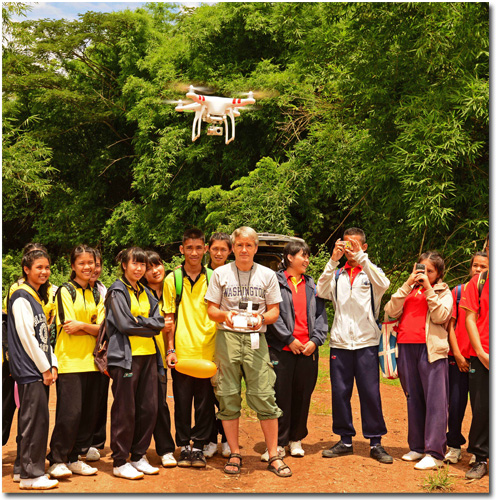UAV Technology Demonstrated for Potential Application in Conservation Biology and Global Health.

The Center for Global Field Study has begun incorporating
demonstrations with Unmanned Aerial Vehicles (UAVs) into
their annual field courses and community outreach education
programs focusing on Conservation Biology & Global Health–at
the Human-Environment Interface. UAV technology is evolving
quickly and offers excellent opportunities for use in field
research and application in global health notes Prof. Randy
Kyes, Center Director. This past summer, aerial drone
technology was included as part of the field course
conducted in collaboration with the Institute for the Study
for Natural Resources and Environmental Management at Mae
Fah Luang University in Chiang Rai, Thailand (July 2014),
and more recently in Indonesia (Aug. 2014) as part of the
annual field course held on Tinjil Island in collaboration
with the Primate Research Center at Bogor Agricultural
University (http://depts.washington.edu/cgfs/ifsp).
Potential research uses of UAVs in conservation biology are
wide-ranging and include examples such as habitat
assessment; wildlife population surveys; monitoring
protected areas/wildlife (i.e., illegal logging/poaching);
etc. Similarly, applications in global health might involve
natural disaster response including area assessment and
victim search; delivery of medications in remote isolated
areas; agricultural monitoring; tracking/ monitoring
dangerous animals that threaten villages; etc.
Prof. Randy Kyes demonstrating a UAV and its potential
uses/applications in conservation biology and global health
for Thai high school students from local villages in Chiang
Rai, Thailand. This outreach education program was conducted
as part of a collaborative field training program with Mae
Fah Luang University
in Chiang Rai. (Photo by Dr. Pensri
Kyes, 24 July 2014).

